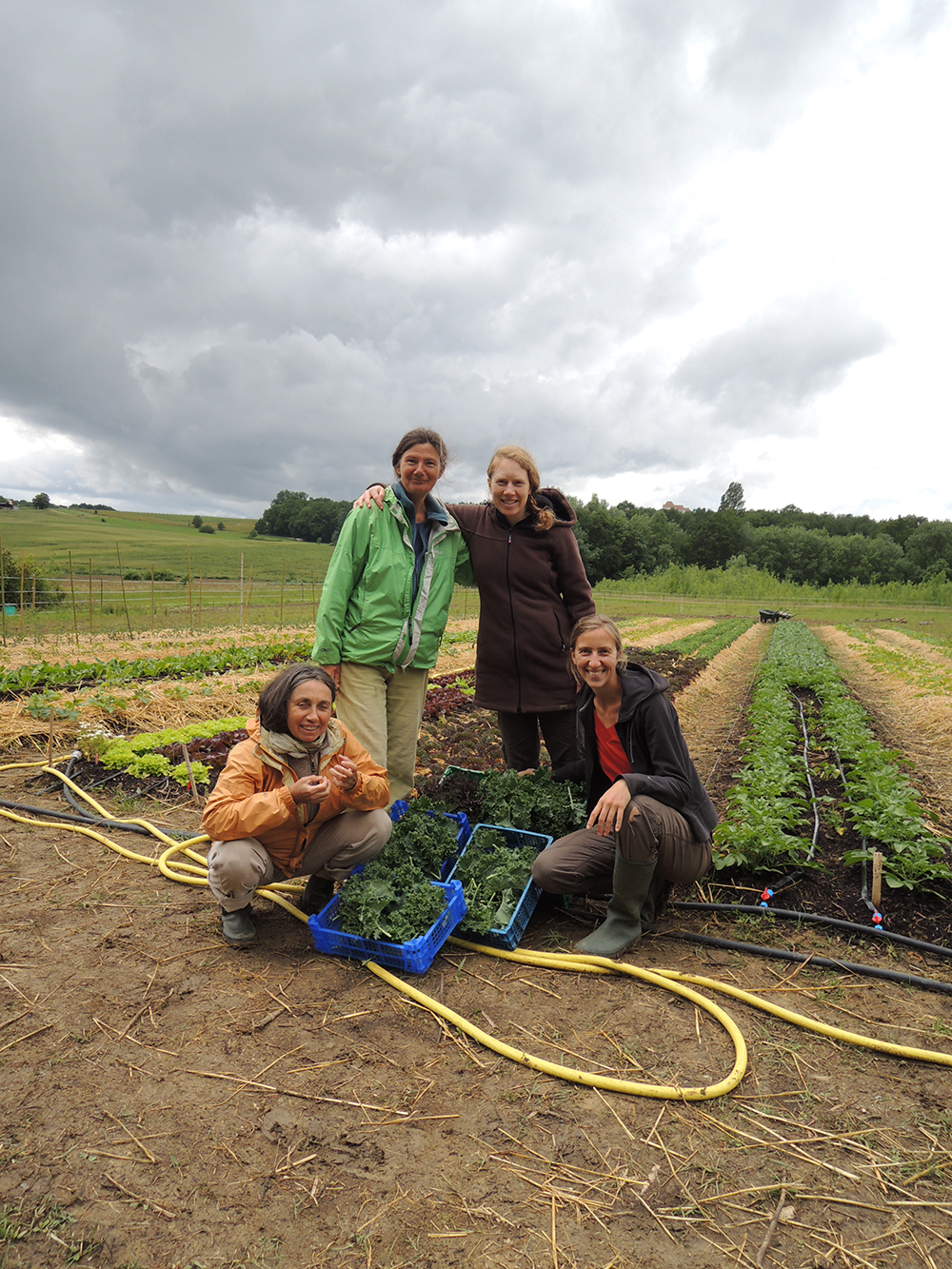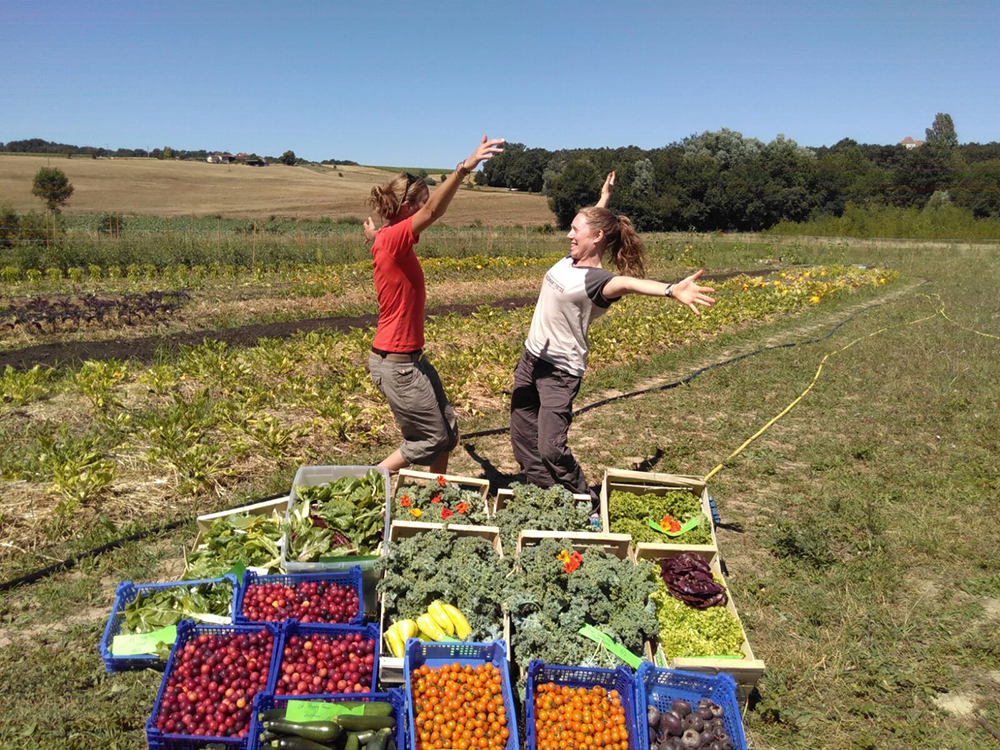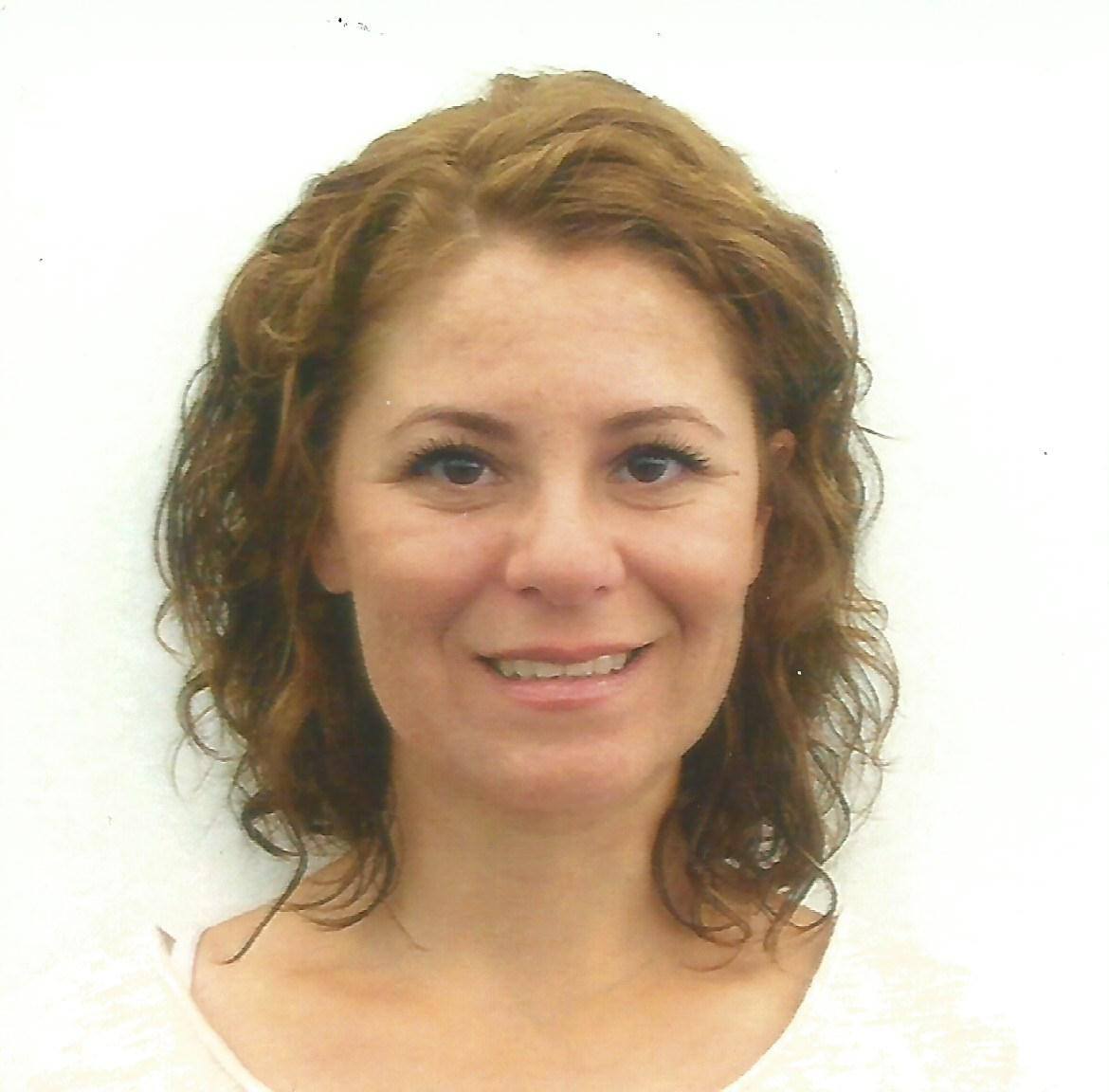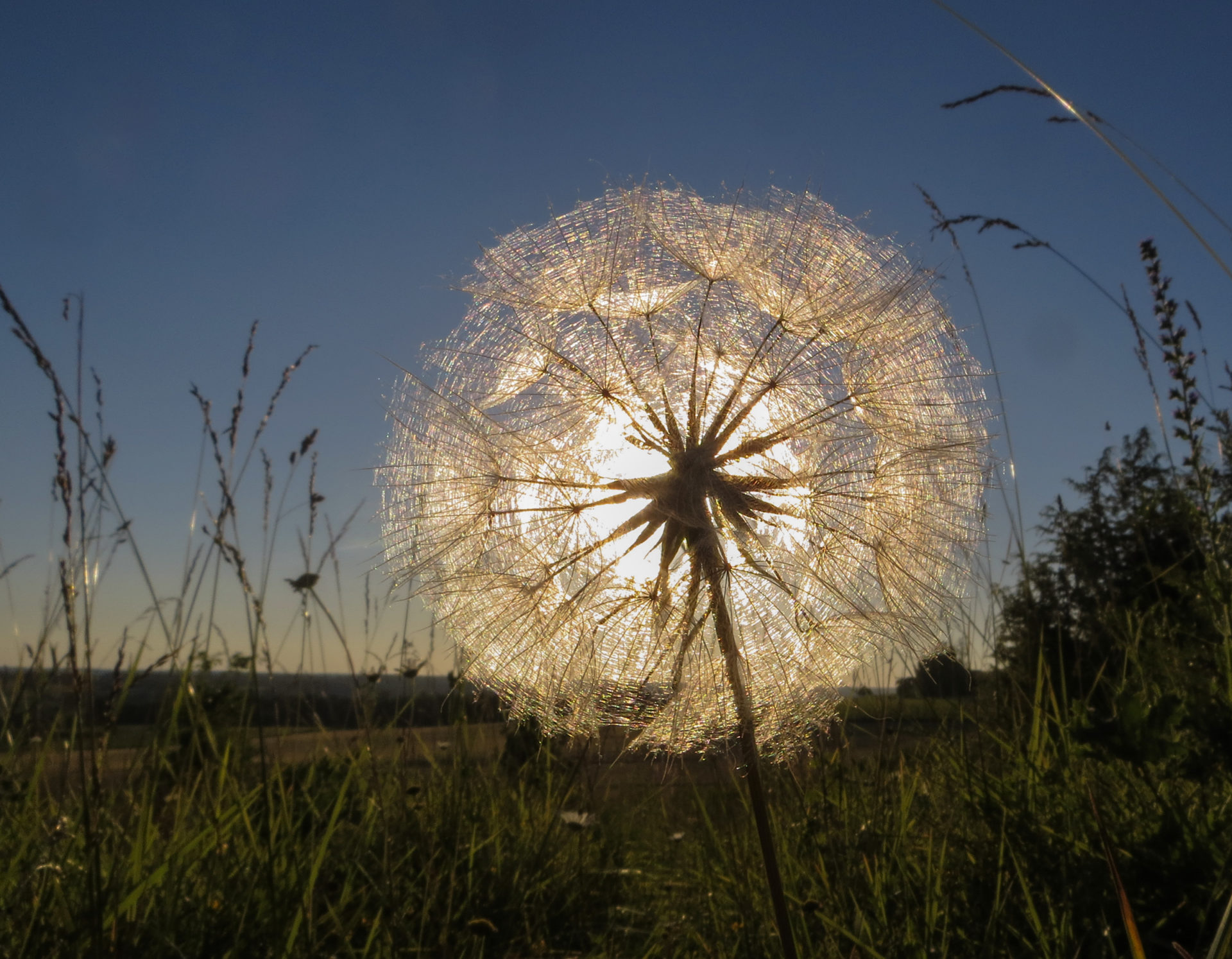Happy Farm Lower Hamlet
By Denisse Aguilar

Twenty years ago, the idea of purchasing ecologically harvested food to feed the Sangha seemed far away. Twenty years later, in Plum Village’s Lower Hamlet, organic vegetables and herbs are being grown to feed the Sangha at the new female-operated Happy Farm.
Happy Farm Lower Hamlet
By Denisse Aguilar

Twenty years ago, the idea of purchasing ecologically harvested food to feed the Sangha seemed far away. Twenty years later, in Plum Village’s Lower Hamlet, organic vegetables and herbs are being grown to feed the Sangha at the new female-operated Happy Farm. “When conditions come together, things are possible. This gives us a lot of faith to dream something and go in that direction,” says Tabea Halfmann, one of the two coordinators of Happy Farm Lower Hamlet. “In January of 2016, I called Andrea Schlueter to see what her plans were for next year because I was thinking about going back to Plum Village.” Andrea responded, “That’s great because I am thinking about starting a Happy Farm in Lower Hamlet. Do you want to be a Happy Farmer with me?”
Andrea’s inspiration came after spending almost a year in Lower Hamlet. During the 2015-16 Winter Retreat, she attended classes given at Happy Farm Upper Hamlet, learning basic agricultural techniques. In January 2016, she wrote a letter to the Sangha expressing her desire to stay longer to practice with the community and to start a second Happy Farm in the Lower Hamlet. The Sangha quickly responded with approval of her request. For years, it has been the deep desire of nuns and female lay practitioners to have a Happy Farm where laywomen and girls could learn about organic farming, sustainability, and reconnecting with Mother Earth.
Andrea and Tabea, both from Germany, co-coordinate Happy Farm Lower Hamlet. They had a basic knowledge of farming before becoming Happy Farmers and are learning more about farming each day. Their aspiration, big hearts, great love for the Sangha, and support from Happy Farm Upper Hamlet and the monastic community inspired them to undertake this magical project. It seems that very little effort was needed in order for it to manifest. “The whole project and how everything unfolded is still very amazing to me. It is such a precious opportunity to live here and have the freedom to create the farm,” says Andrea. “Being a Happy Farmer, it’s the best job I can ever have.”
GENEROUS SANGHA SUPPORT
Sisters Luc Nghiem and Tri Nghiem are mentors on the farm, guiding and supporting Andrea and Tabea in this new venture. Volunteers and lay friends also help on the farm. “It is wonderful to see how happy everyone is about the farm and how much love and support we get from the community,” say Andrea and Tabea. A lot of support and guidance have come from Stuart Watson and Daniel Dermitzel, Happy Farm Upper Hamlet brothers. They were of great help to Andrea in planning the infrastructure, raising seedlings in the greenhouse, and providing much-needed moral support.
Happy Farm Lower Hamlet was financially kick-started with the support of the Thich Nhat Hanh Foundation. Many lay practitioners have expressed their support through donations during Days of Mindfulness and retreats. “I feel so nourished about the impact of Happy Farm in the community; it is bigger than we thought it was going to be,” says Tabea.
CULTIVATING HEALTHY FOOD AND MINDFULNESS
The farm started cultivating ten beds in March 2016, and within a few months had expanded to fourteen; the farmers plan to expand to twenty-four beds of organic vegetables and some herbs in 2017. Vegetables grown at the farm include zucchini, pumpkins, cabbage, tomatoes, cucumbers, potatoes, lettuce, beets, peppers, chilies, and beans. At the end of May 2016, the first crops were harvested. “Discovering the first zucchini flowers was a great joy!” says Tabea. Between May and October, the farmers harvested one thousand kilograms of vegetables.
Not everything has been smooth and easy. A lot of hard work and preparation was needed for the farmers to plant the first crops. For example, the soil poses a unique problem; its moist clay is difficult to work with, and it becomes very solid when it dries. To work with this type of soil, a farmer adds organic compost to the mix. Crops have to be rotated properly, mulching is a necessity, and green manure is used as fertilizer. The soil is not impossible to deal with, and with the proper technique, the farm is now producing beautiful, healthy, organic vegetables for the community to enjoy. Farmers at Happy Farm use classic organic farming methods to be in harmony with Mother Earth and to take care of our planet.
The farm’s main goals are to grow healthy organic vegetables for the monastery and to be a training ground to apply the principles of mindfulness in a working environment. The nuns and lay sisters want to bring organic growing, sustainability, and mindfulness practice together. Applying principles of mindfulness and working meditation, Happy Farmers use the practices of stopping with the bell, walking meditation in the field, Dharma sharing, and morning check-ins to keep themselves grounded while getting work done.
A one-year internship program is offered at the Happy Farm Lower Hamlet to female lay practitioners who are looking for an opportunity to reconnect with Mother Earth and themselves while working, learning, practicing, living, and creating sisterhood and brotherhood within the monastic community.
A normal day on the farm begins at 6:00 a.m. Farmers meditate and have breakfast before beginning their farm duties at 9:00 a.m. They break for lunch and then continue farming until 3:00. Dinner is at 6:00, followed by sitting meditation at 7:45.

AN ORGANIC SOLUTION
In August 2016, nearly 350 young adults, including monastics and long-term lay friends, attended a Wake Up Earth Retreat at Plum Village. During a presentation about the farms, a panelist remarked, “Happy Farm is the solution to all the problems of the world.” The next day, Christiana Figueres, former Executive Secretary of the United Nations Framework Convention on Climate Change, was there to speak about her work at the 2015 UN Climate Change Conference in Paris. She presented a powerful message in support of taking care of Mother Earth by cultivating our own food and reducing the impact that conventional farming has on the Earth. “It was great to hear that from her,” says Andrea.
Thich Nhat Hanh teaches us to practice awareness that “this is a happy moment,” and that we can touch the magical, transformational moments we have in our daily life. Perhaps twenty years needed to go by before Happy Farm Lower Hamlet manifested, but that does not mean the seed was not there before it came to life. The farm is the continuation and product of the desire of many nuns and female lay friends to consume organic vegetables and herbs, as it is their goal to take better care of Mother Earth and to reconnect with her by cultivating their own food and sharing it with our beloved community.
To learn more about the Happy Farm Lower Hamlet, including the one-year internship program and how you can financially support the farm, visit plumvillage.org/news/2016-17-lh-happy-farm-internships/.

Denisse Aguilar, Awakening Lotus of the Heart, is from Tijuana, Mexico, and co-facilitates a Sangha in her hometown. Inspired to make Thay’s teachings available to Spanish-speaking communities, she translates for Sangha events, and transcribes and translates monastics’ interviews for Wake Up. Her deepest aspiration is to be a positive influence on her community and society.

